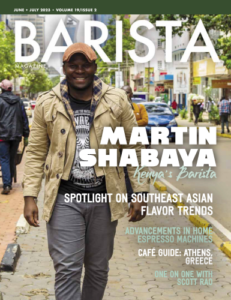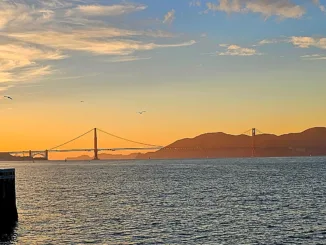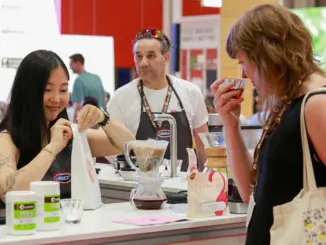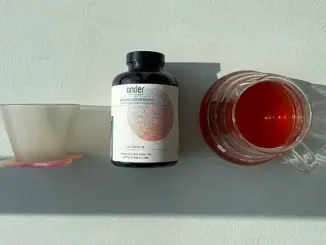
The latest edition of World of Coffee, held in Athens, featured a Roaster Village with more than 70 stands of roasters from all over Europe and further afield.
BY TANYA NANETTI
SENIOR ONLINE CORRESPONDENT
Featured photo by Hert Niks via Unsplash
The World of Coffee in Athens last month was the biggest coffee event I have ever attended. I came prepared to see everything on our to-do list: attending workshops, meeting virtual coffee friends in person, discovering some new coffee tools, and cheering for our favorite competitors.
Roaster Village
But what was I most excited about? The Roaster Village, with more than 70 roasters from all over the world brewing their coffee for three full days. We couldn’t miss it!
So it was that on the first day of the festival, once we entered, we rushed to the village, looking for something new and exciting.
What follows are just some of the highlights of the things I learned, tried, and discovered during our many hours at the Roaster Village.
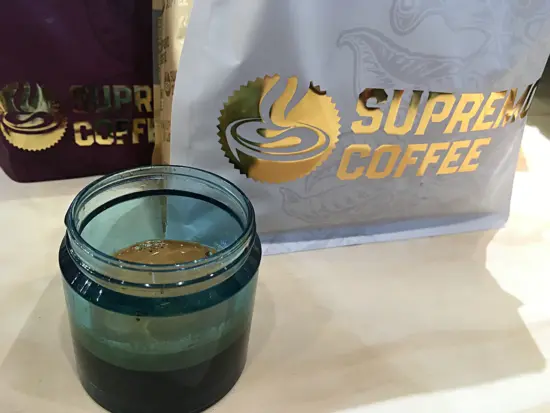
Working Toward Sustainability
The first disorienting thing I realized was the large number of disposable cups that had to be used over the weekend. Imagine thousands of people tasting, over and over again, many different cups of coffee, throwing away the used takeout cup each time. Not exactly good for the environment!
Luckily for us, as our first stop we chose to visit our friends at Supremo Coffee, who were inaugurating their presence at WOC by brewing at the Comandante Grinder booth. Here Raphael, one of the fantastic guys behind both companies, asked me, “Which color do you prefer?” Then he handed me a colorful Comandante jar to use as a reusable mug!
It was an inspired idea reminding me (and hopefully others) that we should strive to be a little more environmentally friendly.
Perhaps future events will adopt a system of using reusable cups (as is the case at many music festivals, where a cup is handed out at the entrance for a small fee and kept for the duration of the festival). In any case, we can all remember to bring our own cup next year. It will be more sustainable and, let’s face it, coffee will taste much better consumed from a real cup!
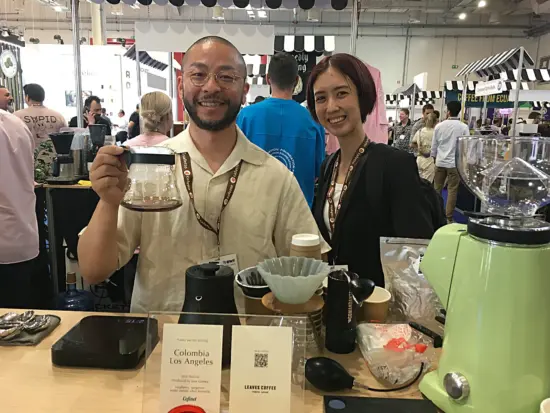
Trying Roasters from Afar
Of the many roasters in the village (more than 70 booths, with many more nearby), most came from somewhere in Europe. Some I had already tried, but many I knew only by name.
But one of the real treats for me was the chance to finally try some roasters from far away, usually so hard to find in the European market. Two of the most exciting coffees I tried were roasted by Onyx Coffee Lab (famous Arkansas, USA-based roaster owned by the champions Jon and Andrea Allen), and Leaves Coffee Roasters, a Japanese roaster owned by Yasuo Ishii, a former professional boxer who started roasting with dreams of becoming World Coffee Roasting Champion).
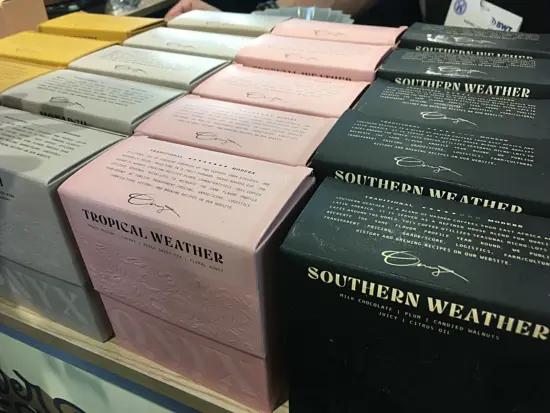
The first offering had a strong and intense flavor, while the second was delicate and floral. The two coffees were different from each other, but were both really delicious.
Brew Tips from a Coffee Taster World Champion
When the world’s leading coffee roasters all gather together, it is very likely that the presence of coffee champions is also quite high. We had the pleasure of meeting Daniel Horbat, 2019 World Cup Tasters Champion and founder of Sumo Coffee Roasters in Dublin, Ireland. On the last day of the festival, almost completely out of coffee, Daniel took his time to brew a Brazilian Cup of Excellence for us, going over grind size, brew ratio, and brewing technique—some valuable tips that we will surely treasure.
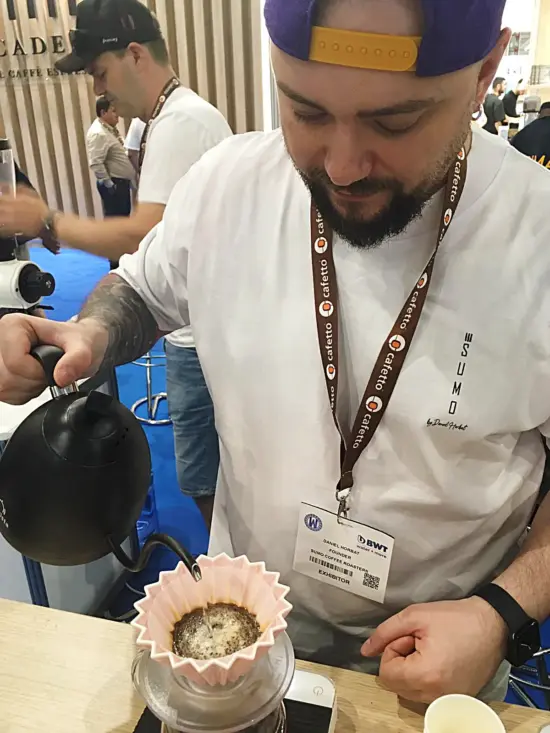
A Delicious Coffee Flight (After You’ve Already Had Too Much Coffee)
Three days of a coffee festival mean that you will end up drinking way too much coffee, eager to keep trying new things while at the same time sampling what you already know and love. After a few hours, you may be tempted to stop drinking coffee for a while, but you will always find some roasters that are simply impossible to resist.
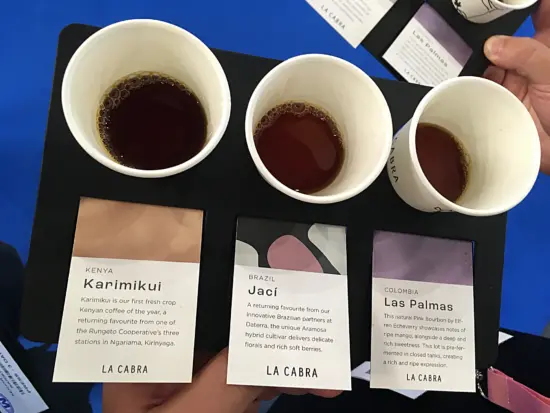
For me, one of the biggest temptations was the Danish roaster La Cabra. Their perfect coffee flight was served to anyone visiting the booth: a paper tray containing three small cups, each with its own brief coffee presentation.
A deliciously fruity Kenya, an interesting Brazil low-caf Aramosa, and a tasty Colombia Pink Bourbon were offered. It was the perfect way to give drinkers an idea of the full potential of a specialty roastery.
Learning More about Alt Milks
Although coffee is the main element of the fair, it was not the only beverage presented in the Roaster Village. A group of booths (both in the village and in the surrounding area) presented several alternative milks. Oat milk was still the main plant-based milk represented; among the brands were Alpro, Minor Figures, and Oatly (which, in addition to pouring lattes, entertained customers with fun latte art throw-downs complete with cocktail tasting). Some new alt milks were also present.
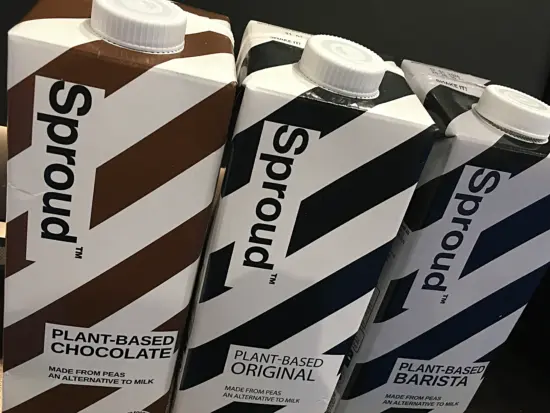
One of the interesting new alternatives is called Sproud. Instead of oats or soybeans, Sproud is made with split yellow peas. The peas, sustainably harvested in France, are milled into a lightweight powder and then shipped to Sweden. There they are processed into vegetable milk, which, among other products, features a line specifically designed for baristas.
The taste is good, the texture (when steamed) is creamy and foamy, and the pairing with lighter-roasted coffee is quite good. Will the market be ready to expand to welcome different alternative milks?
This question may be answered next year, at the next World of Coffee to be held in Copenhagen, Denmark!
ABOUT THE AUTHOR
Tanya Nanetti (she/her) is a specialty-coffee barista, a traveler, and a dreamer. When she’s not behind the coffee machine (or visiting some hidden corner of the world), she’s busy writing for Coffee Insurrection, a website about specialty coffee that she’s creating along with her boyfriend.
READ THE LATEST BARISTA MAGAZINE
Out now: It’s the June + July 2023 issue of Barista Magazine featuring Martin Shabaya of Kenya on the cover. Read it for free with our digital edition. Get your Barista Magazine delivered; start a subscription today! Visit our online store to renew your subscription or order back issues.

